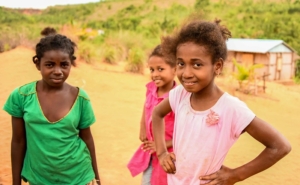Gender Inequality in Madagascar
 Gender inequality in Madagascar remains a key issue for women. The United Nations International Children’s Emergency Fund (UNICEF) defines gender equality as the equal opportunities, conditions, treatment and acceptance of human rights and dignity for all individuals, including men, women and children. It entails ensuring that everyone has an equal chance to contribute to and benefit from economic, social, cultural and political development, irrespective of their gender. Unfortunately, this is yet to be the reality in Madagascar, as women in the country still experience gender-based bias and exclusion.
Gender inequality in Madagascar remains a key issue for women. The United Nations International Children’s Emergency Fund (UNICEF) defines gender equality as the equal opportunities, conditions, treatment and acceptance of human rights and dignity for all individuals, including men, women and children. It entails ensuring that everyone has an equal chance to contribute to and benefit from economic, social, cultural and political development, irrespective of their gender. Unfortunately, this is yet to be the reality in Madagascar, as women in the country still experience gender-based bias and exclusion.
A Cultural Problem
Madagascan cultural traditions and societal norms going back centuries, have forced Malagasy women into a secondary position within the public sphere. Typically, this includes the widespread belief that men should dominate leadership roles and speak out more in public. For example, in the realm of Madagascan politics, only 4% are women, leaving them underrepresented and excluded from social, political and economic circles.
Reports link common practices such as child marriage to restricted education and increased poverty. Around two-thirds of girls from poorer Madagascan regions go into marriage before the age of 18. In contrast, girls with access to secondary-level education in the country are less likely to marry earlier in life. Despite these circumstances making it hard for Malagasy women to achieve equality, the pursuance of livelihood activities from the mangrove forest has enabled those who are uneducated to improve their economic status. But this practice remains highly damaging to the environment and therefore does not present a long-term solution to the effects of gender inequality in Madagascar. Achieving the United Nations Sustainable Development Goal 5 in pursuance of gender equality and the empowerment of all women and girls requires the country to close existing gender gaps.
Some Facts of Gender Inequality in Madagascar
The statistics on gender inequality in Madagascar demonstrate significant economic differences between men and women. Some of the facts are as follows:
- Men in Madagascar earn, on average, 37% more than women, and this is mostly a result of a lack of wage transparency.
- Women are 20% more likely to experience unemployment than men.
- Women and girls, 5 years and older in Madagascar, spend 14.6% of their lives working in the unpaid care sector or on domestic work. In comparison, only 2.8% is the number for men.
- Women working in the export processing zones of the textile and garment sector are especially vulnerable to workplace inequalities.
Reducing Gender Inequality in Madagascar
Although the statistics paint a bleak picture, there are organizations going to great lengths to alleviate the consequences of gender inequality in Madagascar. These organizations aim to enable women to know their rights and seek representation in unions. This is particularly essential as discriminatory stereotypes still exist within the Madagascan union movement.
Representatives from IndustriALL’s Malagasy affiliates; SEKRIMA, FISEMA, USAM and SVS, have noted the importance of providing mentoring and training to women, so they build confidence and feel able to participate in unions. In 2018, USAM introduced a national quota of 40% for women’s representation. As of 2022, The World Bank announced that 48% of its workforce in Madagascar was female, with representation at all levels. This suggests that since USAM’s introduction of a national quota, women’s representation in Madagascar has improved in some areas.
Another important initiative in Madagascar, Feed the Minds, has worked alongside the local organization, Tanjona Association, to improve the livelihoods of Malagasy women through sustainable silk production. The initiative aims to empower 90 members of a women’s association group in Mandrosoa by training them to make silk using environmentally friendly methods. This will give participants the opportunity to acquire functional literacy and numeracy skills, as well as financial concepts, required to form micro-businesses. According to estimates, [in addition to participants], “490 individuals will indirectly benefit from the project”, demonstrating the importance of implementing these kinds of programs. Feed the Minds and other organizations provide new opportunities that not only benefit present-day Malagasy women but also have the potential to empower future generations of girls and women who may not have been aware of their potential.
The Future for Women in Madagascar
In a 2020 report on her trip to Madagascar, Diarietou Gaye, World Bank Group Vice President and Corporate Secretary, argued that Madagascar must create a middle class to promote economic and political stability, which can then lead to job creation. for youths in Madagascar. This, she says, would require women to gain more responsibility and provide an opportunity for them to exercise their abilities in the same way as their male counterparts. Gaye concluded that if men and women in Madagascar had the same opportunities, with equal empowerment efforts for all, then there would be substantial rewards for not just individuals, but throughout entire communities.
– Bethan Marsden
Photo: Flickr
